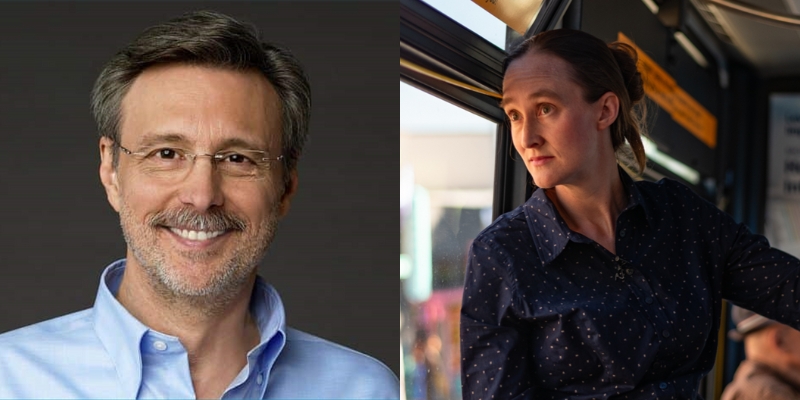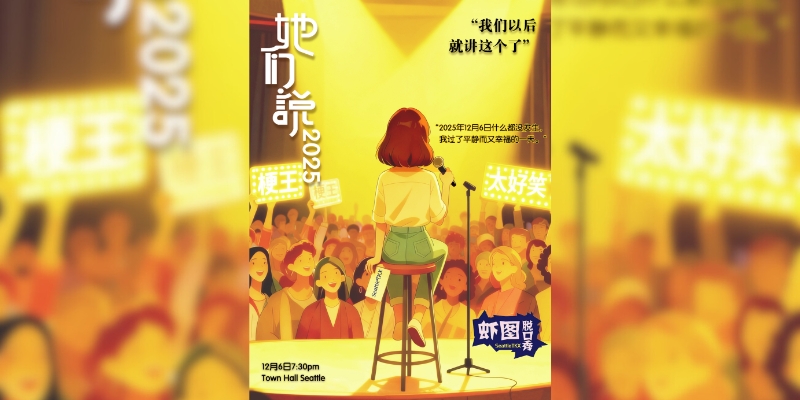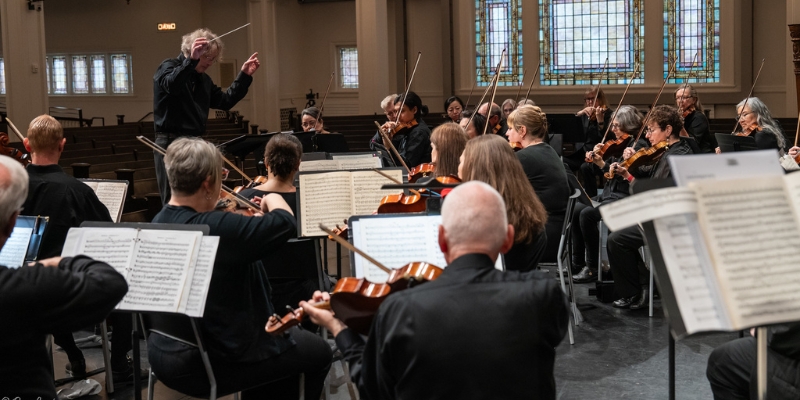Our Town Music chamber series has returned! In this age of COVID-19, the season has been transformed. Town Music, in the coming weeks and months, will explore how digital spaces can enhance our experience of art, rather than simply remind us of what we are missing.
Joshua Roman, Town Music’s Artistic Director, has spent much time in quarantine thinking about what a season of concerts can be without a concert hall for everyone to gather in. He sat down with correspondent Jonathan Shipley to discuss what it means to be a curator in this day and age and what silver linings there may be in a pandemic.
JS: What’s the role of a curator?
JR: To present a view of what chamber music is right now. It’s my responsibility to have the audience trust me. I don’t want to push audiences, I want to pull them into new discoveries. I want to develop a circle of collaboration with them. I want them to experience those discoveries and have that discovery bring them joy.
JS: Has that definition of being a curator changed with the pandemic upon us?
JR: The pandemic has given me a lot more time to think. That’s been the most meaningful thing for me – to think about what’s been done (what we’ve always done), and what we can do now to change things and experiment; to find out what is possible.
JS: You mentioned you have been asking yourself, ‘What is chamber music today’? What answer have you come up with?
JR: It’s constantly evolving. There has been a lot more emphasis, particularly in the last decade or so, on new music. That’s very exciting. I’m always wanting to showcase new music, while looking back on those old favorites. Remember that those old favorites that we know and love were brand new when they were played. Audiences were eager to hear the latest from Beethoven, or Brahms, or whomever. What was new music back then is now classical music. I want to honor that tradition.
JS: Has that evolved at all as you thought about the coming season? Do you not only want to reflect what it is today but push it forward towards some new future?
JR: I’m a preacher’s kid, but I’ve also always had a rebellious spirit. I appreciate the structure of something but, also, what can I do to push it? Chamber music is no longer funded by kings. Chamber music today is being present and creating something new while honoring the past.
JS: You have to know the rules before you break them.
JR: Exactly. I love learning history. I love context. I love connecting something from the past to the present. What is the same as it was during Beethoven’s time? What is different? From that, what can I apply to a coming concert?
JS: What does it mean to curate concerts when you can’t have concerts in a traditional sense?
JR: It’s changed my thoughts. We all want to experience a live concert. There’s nothing like sitting in an audience hearing a piece performed live. Now, though, there are no geographic barriers. If you have access to the internet, you can listen to a concert. But how can we make that more tangible? How can we make it a less passive activity? I’m thinking about that. It’s also giving me a chance to be more nimble. Instead of planning out a concert for, say, next February, I can respond to what’s happening in the world much sooner. If we want to reflect Seattle this week, we can.
JS: Not only is the nation facing the pandemic, we’re confronting racial inequities in this new uplift of the Black Lives Matter movement. What does it mean to curate as a white man in this era?
JR: We cannot afford to miss this opportunity to do better, to be better. My white privilege can help. Money, relationships, capital, space, attention, performers. I am blessed with resources. I want to allocate those resources that address the issues the best that I can.
I have been asking myself, ‘Am I the right person to do this? If not, can I change to be the right person? Or do I give it to someone better suited?’
JS: What are you, as a white man, doing to remove your blind spots in regards to race?
JR: Sit. Listen. Learn. I’ve attended seminars and discussions on DEI. I always welcome all these conversations.
JS: Does the pandemic give you any silver linings? Does it help that perhaps there is no going back to normal?
JR: The jury is out on that one. Each of us as a human being has an opportunity to sit back and see how things fall, or reach up and have a hand in how it all works out. We can take on these long-standing issues and better ourselves.
JS: Are there music organizations that have inspired you by what they’ve been doing during COVID?
JR: The Seattle Symphony. They were one of the first orchestras to adapt to the pandemic and it’s been really successful. The Music Academy of the West is another one. It’s been really heartening to see young musicians evolving, not only themselves, but music during this COVID time.
JS: What are you most excited about the coming season?
JR: I’m excited but also nervous. I’m excited to be nervous about all of this. This is all new. We’re all going into this together without knowing the outcome. There’s this vulnerability that I think everyone has been feeling. We’re not entirely in control and that’s both frightening and exciting. The creative spirit wants to explore and if we are all fully present with the right questions we can find meaningful answers.
This interview has been edited and condensed.
Click here to find out more and become a subscriber of Town Music during the 2020-21 season.



